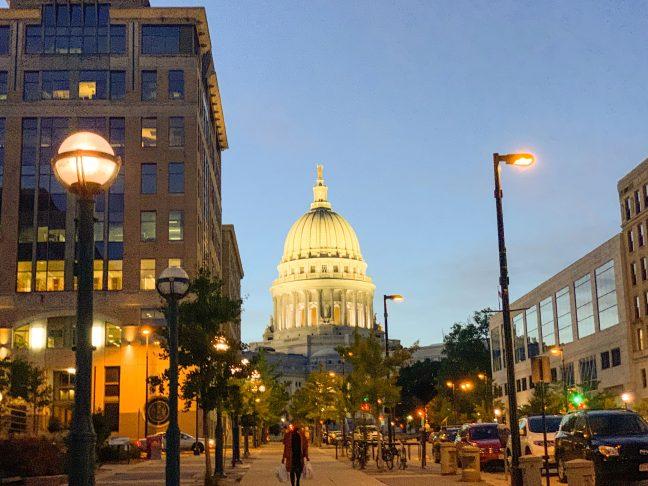In the midst of ongoing racial disparities across the state, city officials and activists continue to work to close racial disparity gaps in Dane County.
According to a recent study by job resource site Zippia, Wisconsin was ranked number one in the nation for the worst racial disparities, especially among Black Americans. The report ranked states based on the income gap, education gap, home ownership disparity, and Black Americans incarceration rate.
Greg Jones, the President of the Dane County Branch of the NAACP, said the local chapter is working to create equal opportunity across the spectrum of racial disparity issues in Madison. In the upcoming election year, Jones said it is more important than ever to put the key issues minority communities are facing in the forefront for the future.
“I don’t know if we measure the change specifically in an election year, but what we do is we get [the issues] on the agenda of the candidates running for office,” Jones said.
Jones said in regard to racial disparities in Madison, the areas his local team holds at highest priority are education, criminal justice, health, economic development and job development.
Combatting racial disparity in education now priority for increasingly diverse state government
While these main goals reflect some of the major principles of the NAACP nationwide, Jones said there are unique issues that face Madison and other communities the local chapter works towards addressing.
“We tend to follow our national guidelines as far as the game-changer areas of focus,” Jones said. “But at the same time, we know that each community has some unique issues that it faces.”
One of the key areas Jones talked about was educational achievement gaps for minorities in the Madison area. Jones said the NAACP local chapter is working with both the school districts to attend meetings and committees to advocate for youth facing the achievement gap reality.
Jones said the NAACP local chapter is raising awareness about achievement gap issues in an upcoming forum for the Madison Metropolitan School Board members. In an effort to create an equitable environment for students of color, Jones said the forum will also address school safety issues and the roles of resource officers.
“One of the things that we think we are supposed to be doing is just looking at the landscape of the education industry in Dane County and Madison and identify those [policies] that we can get behind and support,” Jones said.
Education is extremely important in the ways it translates into other achievement gaps in racial disparities, according to Jones. Jones said there is an overwhelming portion of students who are getting stuck in a “poverty pusher.”
Jones said within the education system, there are changes that can be made to ensure certain students’ needs are being met.
“Not just the disparities in terms of the academic gap, reading, and language … but also the education outcome for graduation,” Jones said. “You have a growing number of people of color who are not getting to that level. Those things are systematic and need to be looked at.”
Point Counterpoint: Focus on out-of-school factors to close achievement gap
Norman Davis, The Director of Civil Rights, said the city was mobilized to take action in light of studies revealing high levels of racial disparities in Wisconsin over the past few years.
Davis said the city is confronting racial disparities with a “much more productive look” at what they are doing since around 2013. The city’s role has evolved to be much more active in recent years, according to Davis.
“The city has participated in discrimination in some way, shape or form, whether actively or passively,” Davis said. “We wanted to make sure that we stand any future opportunities so that the city would incorporate racial equity strategies with all the plans and policies and the decisions that we’re making.”
Davis said the city’s top priority is to address disparate impacts of Madison’s ongoing housing crisis. Davis said the city’s Equal Opportunities Commission has been working over the past few years to hear the stories from the community and the hardships community members have experienced.
These interactions with the community help inform policy decisions as the Civil Rights Department, the mayor, and other departments across the city as they try to address these issues among marginalized groups.
“[We] are very focused on making sure that our communities of color and other marginalized groups have a strong sense of belonging as residents here in Madison,” Davis said.
Davis said the Civil Rights Department’s partnerships at the local, state and federal level are key to addressing overall racial disparities in the city. Through working with other institutions, the city can be more effective in dealing with discrimination issues. Davis provided the example of the city’s partnership with Madison College to create a free legal clinic to assist with disparities in the criminal justice system
Davis said through continuing to foster partnerships and increasing training to other local agencies, the city can take a comprehensive approach to fight racial disparities in Madison.
“We have some really fruitful initiatives here in Madison,” Davis said. “But we want to have an impact on our surrounding region also, so we have some projects in the works to do a better job reaching out … and getting our messaging out to more of our neighboring communities.”


















